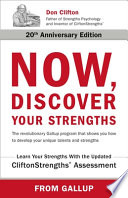

The core premise of the book is that individuals should focus on their strengths rather than trying to improve their weaknesses. The authors argue that by identifying and nurturing our innate talents, we can achieve greater success and satisfaction in our personal and professional lives. This approach is grounded in positive psychology and emphasizes the importance of leveraging what we naturally excel at. By concentrating on our strengths, we can enhance our performance, build confidence, and foster a sense of fulfillment. The book provides a framework for identifying these strengths through the StrengthsFinder assessment, which categorizes talents into specific themes.
Continue readingThe authors emphasize that talent is not merely a result of hard work or education; it is an inherent aspect of who we are. They define talent as a naturally recurring pattern of thought, feeling, or behavior that can be productively applied. This distinction is crucial, as it highlights the need to recognize and cultivate our unique talents rather than conforming to a one-size-fits-all model of development. By understanding our talents, we can align our career choices and personal goals with what we are naturally predisposed to excel at, leading to more meaningful and successful outcomes.
Continue readingFeedback plays a vital role in the process of discovering and developing one's strengths. The authors argue that constructive feedback helps individuals gain insight into their talents and how they can be effectively applied in various contexts. They encourage readers to seek out feedback from peers, mentors, and supervisors to better understand their strengths. This external perspective can illuminate areas where individuals may not recognize their own potential. However, the authors caution against overly critical feedback that focuses on weaknesses, as it can undermine self-esteem and motivation.
Continue readingThe book discusses the significance of leveraging individual strengths within teams and organizations. When team members are aware of each other's strengths, they can collaborate more effectively by assigning tasks that align with each person's talents. This not only enhances team performance but also fosters a culture of appreciation and respect for diverse skills. The authors provide practical strategies for managers and leaders to create strengths-based teams, emphasizing the importance of communication and understanding among team members to maximize collective potential.
Continue readingDiscovering and utilizing one's strengths leads to greater personal and professional fulfillment. The authors argue that when individuals engage in activities that align with their strengths, they experience higher levels of satisfaction and motivation. This fulfillment is not just about achieving success; it also encompasses a sense of purpose and meaning in life. The book encourages readers to reflect on their strengths and consider how they can integrate them into their daily lives, whether in their careers or personal endeavors, to cultivate a more rewarding existence.
Continue readingThe authors critique traditional models of personal and professional development that prioritize fixing weaknesses. They argue that these models can lead to frustration and disengagement, as individuals may feel pressured to conform to expectations that do not align with their natural talents. Instead, the book advocates for a paradigm shift towards strengths-based development, where the focus is on enhancing what individuals already do well. By doing so, individuals can achieve higher levels of engagement, productivity, and satisfaction in their work and lives.
Continue readingFinally, the book highlights the interconnectedness of strengths, passion, and purpose. The authors suggest that when individuals align their strengths with their passions, they are more likely to find fulfillment and success. This alignment fosters a sense of purpose that drives motivation and commitment. The book encourages readers to explore their passions and consider how they can integrate them with their strengths to create a more purposeful and impactful life. The authors stress that this journey is personal and requires self-reflection and exploration.
Continue readingThe reading time for Now, Discover Your Strengths depends on the reader's pace. However, this concise book summary covers the 7 key ideas from Now, Discover Your Strengths, allowing you to quickly understand the main concepts, insights, and practical applications in around 21 min.
Now, Discover Your Strengths is definitely worth reading. The book covers essential topics including Strengths-Based Development, The Importance of Talent, The Role of Feedback, providing practical insights and actionable advice. Whether you read the full book or our concise summary, Now, Discover Your Strengths delivers valuable knowledge that can help you improve your understanding and apply these concepts in your personal or professional life.
Now, Discover Your Strengths was written by Donald O. Clifton, Marcus Buckingham.
If you enjoyed Now, Discover Your Strengths by Donald O. Clifton, Marcus Buckingham and want to explore similar topics or deepen your understanding, we highly recommend these related book summaries:
These books cover related themes, complementary concepts, and will help you build upon the knowledge gained from Now, Discover Your Strengths. Each of these summaries provides concise insights that can further enhance your understanding and practical application of the ideas presented in Now, Discover Your Strengths.